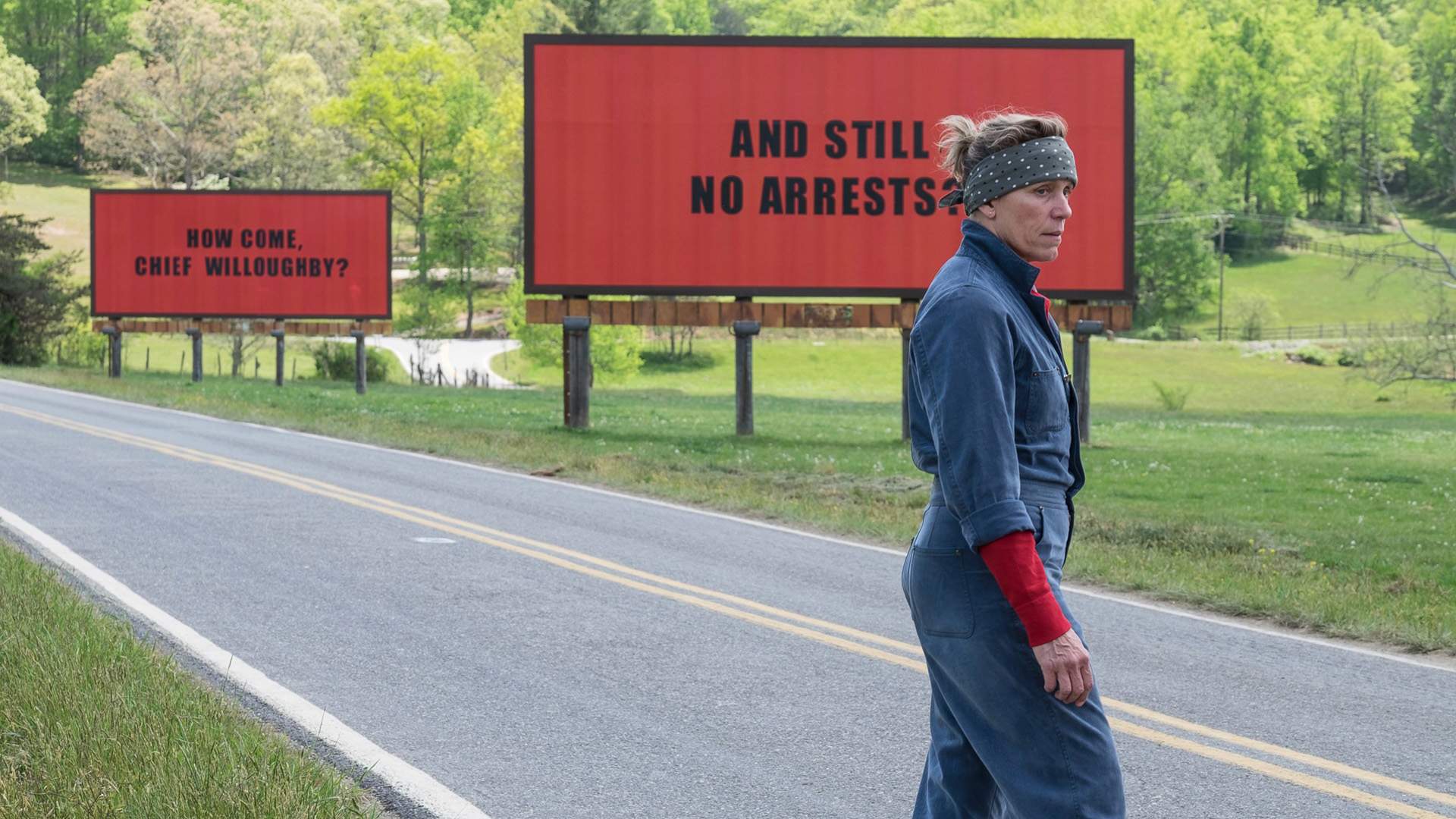Three Billboards Outside Ebbing, Missouri
Frances McDormand deserves an Oscar nomination for her performance in this darkly funny drama.
Overview
"It's actually a western" is a fairly common call these days, directed towards everything from superhero films to horror flicks. In the case of Three Billboards Outside Ebbing, Missouri, the comparison really sticks. In the latest biting black comedy from writer-director Martin McDonagh (In Bruges, Seven Psychopaths), a horrific tragedy inspires a determined crusade, as a lone hero commits to doing whatever it takes to see justice done and a small town gets caught up in the chaos. Shots are fired, in the form of controversial signs, scuffles with dentists, cursing at priests, and hurling both people and Molotov cocktails through windows.
Clad in faded boilersuit rather than cowboy hat and holster, Mildred Hayes (Frances McDormand) leads the charge. After spotting a trio of weathered billboards on the rarely used Drinkwater Road outside of the titular locale, she hires them out with the purpose of sending one hell of a message. Still mourning the death of her teenage daughter seven months earlier, and equally furious and frustrated about the lack of progress in the local police investigation, Mildred arranges for the signs to bear three statements. "Raped while dying," reads the first. "And still no arrests?", asks the second. "How come, Chief Willoughby?", pleads the third.
The origins of the film's fantastic title might be immediately apparent, but the directions that Three Billboards heads in from there are far from predictable. The movie wears its rage as prominently as Mildred wears her wilt-inducing glare, while at the same time chronicling her grief with empathy and understanding. It's a delicate balance, never downplaying either her ire or her pain, and it's one that McDonagh gets just right. It also proves essential as Mildred crosses paths with other townsfolk, such as the well-respected Chief (Woody Harrelson) named on her signs, and the easily angered Officer Jason Dixon (Sam Rockwell), who's known for his brutal racism more than his law-enforcement prowess.
Packed with dark, hilarious, nigh-unprintable dialogue, McDonagh's script mightn't be subtle, but it is teeming with complexity — much more than some of its seemingly simplistic takes on race and gender might initially indicate. Taking his cues from gunslinging revenge tales gone by, the filmmaker crafts a complicated rumination on humanity's contradictions, including the way that the right intentions can still lead to murky outcomes, and vice versa. His storytelling approach demonstrates a similarly stark contrast in action, convincingly flitting from scathing to thoughtful to loud, foul-mouthed and attention-seeking, and back again, in an instant.
From the second that McDormand's Mildred locks eyes on the billboards, there's no doubting the movie's other big standout. It's hardly surprising given the actress' track record, but it bears highlighting all the same. While Harrelson and Rockwell are in terrific form, they've got nothing on McDormand, who seems certain to pick up another Academy Award nomination more than 20 years after scoring her first playing the polar opposite type of role in Fargo. She's in total command of the movie from beginning to end, though in true western style it's the small gestures, more than the witty speeches, that really leave a lasting impression. The range that she shows — whether in a momentarily faltering gaze, an unthinking act of kindness in a confrontational situation, or a look of troubled realisation — many actors can only dream of.





